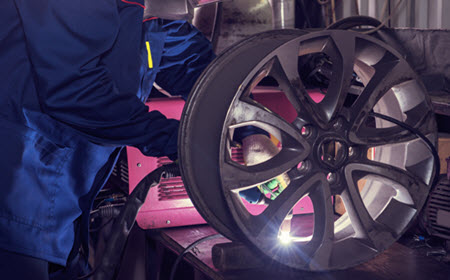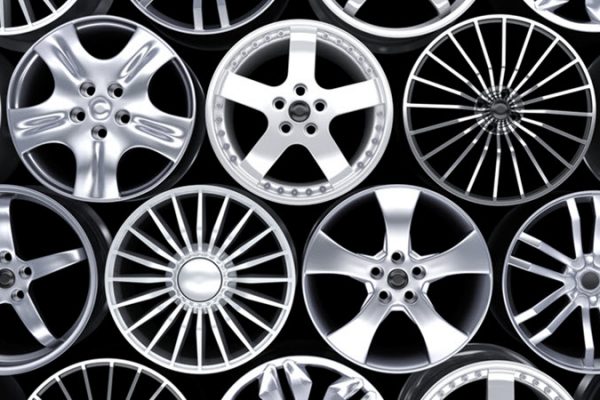BMWs are known partly for their luxury and aesthetic, and part of the charm and aesthetic that appeals to the masses are the alloy wheels. Many BMW models come stock with alloy wheels, and if they don’t then you can purchase OEM stock alloy wheels for your BMW through the manufacturer.
In recent years, alloy wheels have become more of a commodity. They look good on a car, they can be sized up easily, and they come in a variety of styles. While all wheels are vulnerable to scratches and becoming damaged, alloy wheels are especially prone to damage – one of the only downsides. In this article, we’ll go over why alloy wheels are especially susceptible to cracking and what you can do to address the problem in your own BMW’s wheels.
How wheels become cracked
There are a number of ways that an alloy wheel can become cracked, and most of the time it’s unavoidable. We all do the best we can to avoid potholes, curbs, or road imperfections that can damage our wheels – or even our suspension; however, not all roads are paved equally, not all curbs are visible from far off or at night, and sometimes potholes are filled with water, giving the illusion that it’s simply a puddle. If you’ve opted for alloy wheels in your BMW, then it’s really only a matter of time before you experience your first scratch or crack.
Types of wheels
There are many different wheel designs out there, and alloy wheels are some of the most commonly sized-up wheels on the road today. Although alloy is highly customizable, it is also highly malleable and prone to cracking with even the slightest bit of force. One may ask, “why the heck would anyone want alloy wheels then?” well, the answer is simple: they look good. Alloy wheels come in a range of sizes and are relatively affordable. The only bad news is that the larger the wheel gets the less room for error there is. Think of it this way, if you reduce the amount of rubber between the edge of the wheel and the edge of the tire by sizing up your wheels, then the wheel itself takes a lot more impact. This leaves a lot of opportunity for wheels to become cracked or fissured rather easily.
Types of cracks
The type of crack that your wheel encounters will greatly determine whether the problem is repairable or not. When your alloy wheel encounters a small crack or fissure, it may be easy to fix with the right set of tools and skills; however, this isn’t always the case. Even if the crack is small enough to be fixed, it might be too deep to repair. In the case of a large but fine crack, you have a fairly good chance at fixing it – but if it’s a large, deep gouge, then you’re better off replacing the wheel all together.
How to address the problem
 The first thing you should do if you notice a crack, fissure, scratch, or any other imperfection in your wheel is to bring it to a BMW specialist – they will be able to determine whether or not the wheel can be fixed. In the worst case scenario, the wheel will need to be replaced, and in this instance the BMW specialist will be able to order you a new, OEM alloy wheel replacement. Though it’s not ideal, it may be cheaper in the long run to replace the wheel, since the propensity for damage is pretty high. To prevent wheel damage, all you can do is remain vigilant while driving and keep your newly driving teenager out of your car.
The first thing you should do if you notice a crack, fissure, scratch, or any other imperfection in your wheel is to bring it to a BMW specialist – they will be able to determine whether or not the wheel can be fixed. In the worst case scenario, the wheel will need to be replaced, and in this instance the BMW specialist will be able to order you a new, OEM alloy wheel replacement. Though it’s not ideal, it may be cheaper in the long run to replace the wheel, since the propensity for damage is pretty high. To prevent wheel damage, all you can do is remain vigilant while driving and keep your newly driving teenager out of your car.
The BMW experts here at Escondido German Auto Shop have attended to countless wheel repair procedures over the years. The residents of Rancho Bernardo, Valley Center, and Escondido, CA, put their faith in us because we’re honest and don’t offer superfluous repairs. Furthermore, our 2-year/24,000-mile warranty on our repairs conveys to our clients that we mean business when it comes to auto repair – we never cut corners, and we’re proud of our work. When it comes to alloy wheel repair in your BMW, we’ve got you covered.

